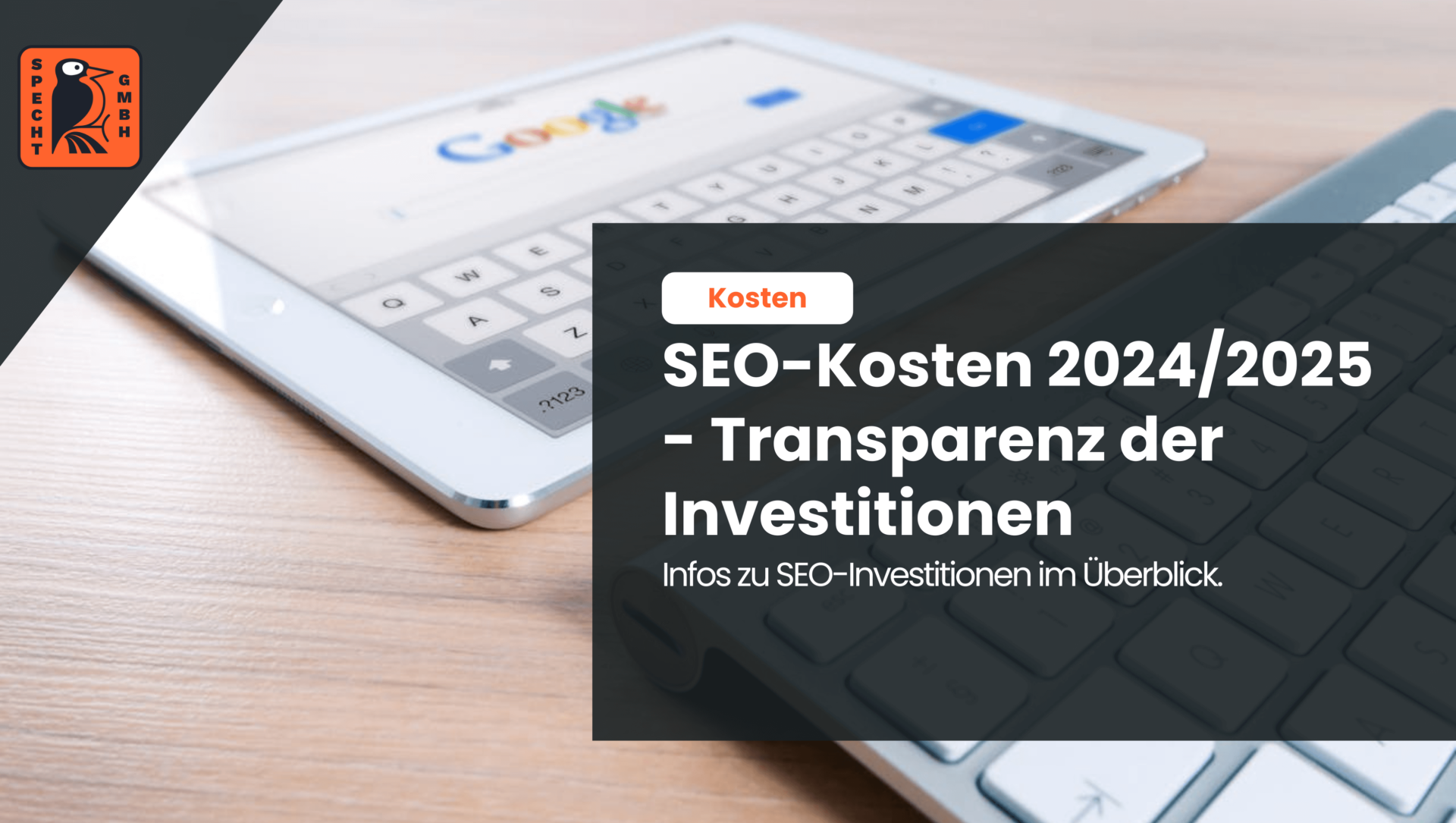In a nutshell: What are search results?
The term search results refers to the pages that are displayed as hits for a query on search engines such as Google. These hit lists are also referred to in technical jargon as "Search Engine Result Pages" ( SERPs for short).
They are made up of paid and organic search results. In general, search results are an important part of the internet. They help users to quickly find the information and answers they are looking for.
How are search results generated?
Google and other search engines use so-called bots, which constantly search the virtual web for new content. In technical terms, this step is known as "crawling". After the search, the search engines index some of the content found. For example, they save the URL, texts, images and other information.
For a new search query, Google then accesses the stored information and creates a ranking. The search engine uses an algorithm that evaluates each website in terms of its quality and thematic relevance.
The search engine also takes into account factors such as the user's location and search history. Finally, the search results are presented as an ordered list in a matter of seconds.
These factors influence the search results
Search engines take various factors into account to generate personalized SERPs, for example:
- Search query
- User location
- Previous search behavior (search history)
- Intention (information, purchase intention, navigation and more)
- Actuality
- Search algorithm
- Index size
- Display format
Tip: Would you like to receive less personalized Google search results? Then you should regularly delete your web history before you search on Google. It also helps to stop saving search queries in your browser. Alternatively, you can surf the web anonymously in "private mode" so that the search engine does not save any information or downloads.
-
Free
SEO strategy meeting
In a free SEO strategy talk, we uncover untapped potential and develop a strategy to help you become more successful on Google.

- More organic visibility
- More organic visitors to your website
- More inquiries & sales
Google, Bing & Co as the basis for search results
Search engines are the basis for search results and play a key role in search engine optimization. Two search engines in particular form the gold standard, so to speak.
Google is the market leader
Googled today? Many SEO basics are based on the most popular search engine, Google. It is number one in this country with a market share of over 90 percent.
In second place is Bing, a search engine from Microsoft. The global distribution of search engines is somewhat different. In an international comparison, Google "only" accounts for 70 percent, followed by Bing with a share of around 13 percent. Baidu has established itself in Asia and is sometimes more popular there than Google.
Organic search and paid traffic: the pillars of search results
If you want to understand Google search results, you will come across the terms "paid traffic" and "organic search" at some point. Both factors flow into the presentation of search results, but are completely contradictory in their substance.
What is paid traffic?
The term "paid traffic" defines paid advertisements. These can appear in the form of banners or ads as Google search results. At first glance, advertisements on Google are not always recognizable as such, but they must have the clear designation "ad".
In contrast to organic search results, paid ads are designed to generate more leads. There are various advertisements that can appear in the search engines:
Ads ads
The so-called ads are displayed in the search results in real time. They are allocated via an auction process that is based on the bid and thematic relevance, among other things.
Product Listing Ads
This type of ad presents products and is preferably used inthee-commerce sector. It gives companies the opportunity to advertise their products directly via Google search results.
How do organic search results work?
Organic search results are not paid advertisements, but are the result of search engine optimization. In contrast to paid ads, the organic search index is often more sustainable and demonstrates added value, as it is created solely on the basis of good on-page and off-page factors.
One of the key factors for organic search results is content marketing. The more informative and useful the articles are, the more they increase the number of visitors and the time spent on a website. Accordingly, websites with good content will rank better in Google search results.
Connection between search results and SEO
The abbreviation SEO stands for search engine optimization and is extremely important for search results. SEO in online marketing makes websites more visible and ensures better rankings in organic search results.
This is an immense advantage for companies, as users usually only call up the top results for a search query. A website gets good rankings through various factors. Various on- and off-page optimization measures help websites to be more visible in the search results.
Onpage optimization: Content is king
On-page optimization is essential for ranking well on Google and other search engines. It comprises a whole range of factors that improve the content and structure of websites:
- Content is king: If you want to rank well and be at the top of the search results, you should provide users with high-quality, up-to-date and unique content. It's less about the content format and more about the quality.
- The structure of a website also influences the ranking in the search results. Headlines and meta tags are just as important as specific keywords that appear as search terms on Google.
- Linguistic and graphic elements also influence the ranking of search results. A page has a good chance of appearing at the top of a search query if it has loosening elements such as bullet points or infographics and internal and external links.
- Last but not least, technical factors such as mobile optimization or the click-through rate (CTR) are included in on-page optimization.
Offpage optimization with backlinks
Off-page optimization increases the level of awareness of websites and relies primarily on trustworthy backlinks. These links should not be used indiscriminately, but should offer users added value and be relevant to your brand and content.
Search results viewed critically
Google search results in particular are repeatedly criticized. This is because the ranking of various pages is sometimes based on a high degree of personalization. In many cases, users are shown a search result that matches their individual preferences and interests.
Experts fear that this will create "filter bubbles" and that the broad range of opinions and views will be neglected in the search results.
Paid advertisements, which are increasingly limiting the capacity for organic search results, are also being criticized. As a result, companies are coming under increasing pressure to appear at the top of the results through targeted rankings.
What impact does AI have on search results?
For some time now, search engines such as Google and Bing have been using artificial intelligence to determine search results. With the help of modern tools such as sentence completion and AI-based tips, Google wants to personalize search results even more.
Bing is also taking advantage of the latest possibilities around AI and uses the popular ChatGPT for texts, for example. The extent to which writing tools, image editing tools and other AI-supported technologies will impact organic SERPs remains to be seen.
In order to continue to achieve good rankings on Google with your own websites, you should familiarize yourself with the changes, keep an eye on your SEO strategy continuously and adjust it if necessary.
Conclusion: What are search results?
Search results improve the reach of companies and private individuals on the Internet and can, not least through targeted search engine optimization, increase online presence and attract new customers.
Search results are generated through a complex process of crawling, indexing and the search engine algorithm. In addition to search engine optimization, artificial intelligence is becoming increasingly relevant for the creation of search results.
- Do you know my SEO newsletter?
Register now and receive regular tips from the experts.






